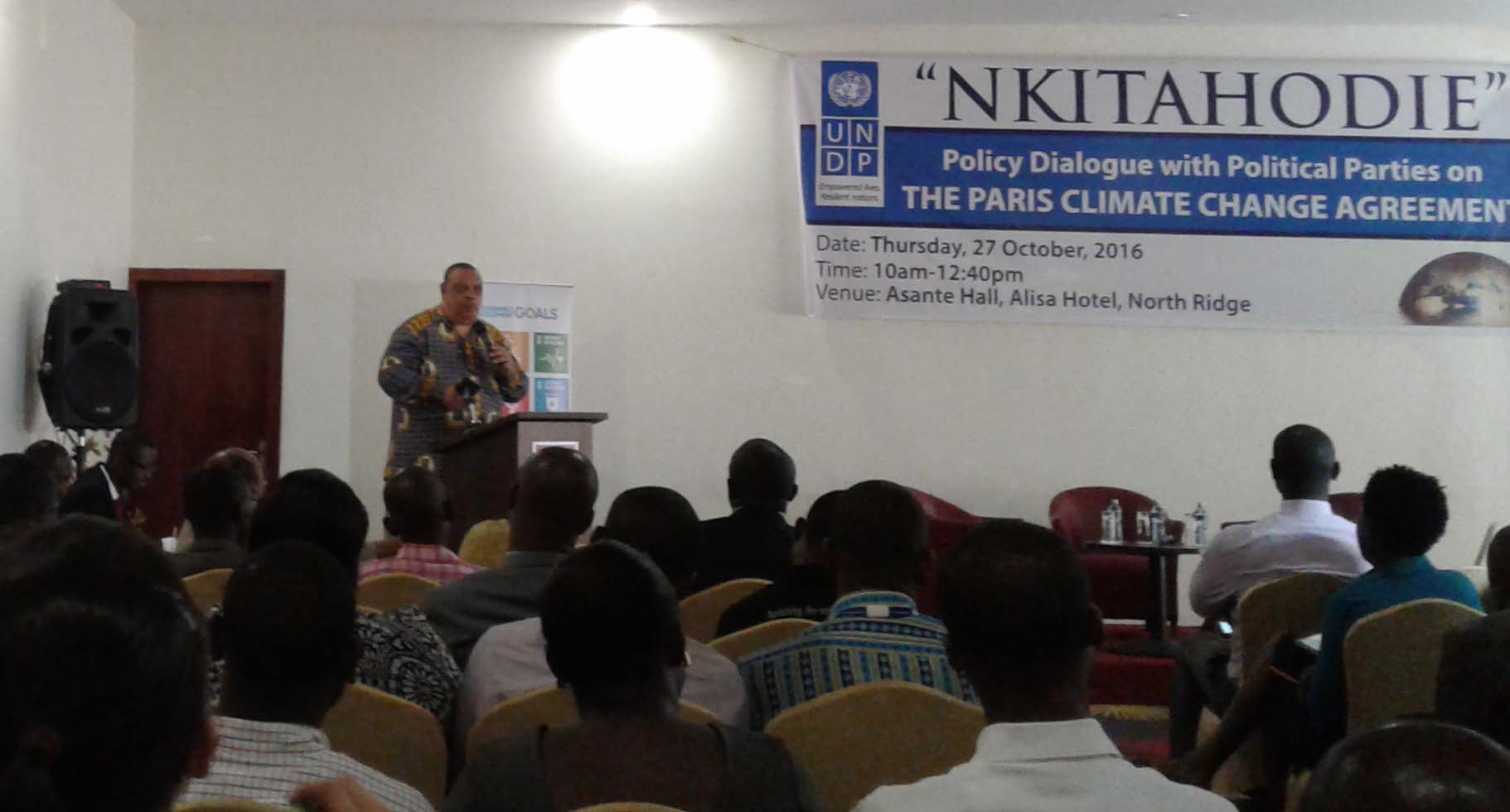The much anticipated, interesting and interactive “Nkitahodie” policy dialogue with political parties on the Paris Climate Change Agreement organised by the United Nations Development Programme, UNDP took place at the Alisa hotel in Accra on 27th October, 2016. The aim of the dialogue was to enhance the understanding of political parties on the climate change agreement and engender climate change consideration in political manifestos and development policies for the country.
 |
In an introductory speech, Mr. Mulugeta Abebe, UNDP Deputy Country Director noted that for Ghana’s INDCs to be fully addressed, there will be the need for strong commitment from political parties.
Professor Chris Gordon, the Director of the Institute for Environment and Sanitation Studies (IESS) who was a guest expert at the event indicated that Ghana has made significant strides in developing the National Climate Change Policy (NCCP). In addition, 11 adaptation and 20 mitigation programmes have been established. He further pointed that the Institute for Environment and Sanitation Studies (IESS) is currently carrying out a climate change adaptation project in two districts in the Upper West Region; the Adaptation at Scale in the Semi-Arid Regions (ASSAR) project, driven by a Research into Use (RiU) strategy.
Prof Gordon concluded by noting that as a country business as usual is not an option, rather there was the need to leapfrog the opportunities the Intended Nationally Determined Contributions (iNDCs) have provided.
Mr. Seth Osafo, a member of the Africa Group of Negotiators and a legal advisor to the United Nations Negotiations on Climate Change presented the legal basis backing climate change negotiation processes from the Kyoto protocol to the current Paris Agreement.
Mr. Osafo bemoaned the poor governance in environmental management in the country and the country’s inability to adopt best practices from neighbouring countries. He called on political parties to consider giving climate change and other environmental issues prominence in their manifestos in this year’s election.
The National Democratic Congress (NDC), New Patriotic Party (NPP), Convention People’s Party (CPP), Progressive People’s Party (PPP) and the People’s National Congress (PNC) who participated in the event took turns to present sections of their manifestos which were carbon compliant amidst lively discussions with the audience.
